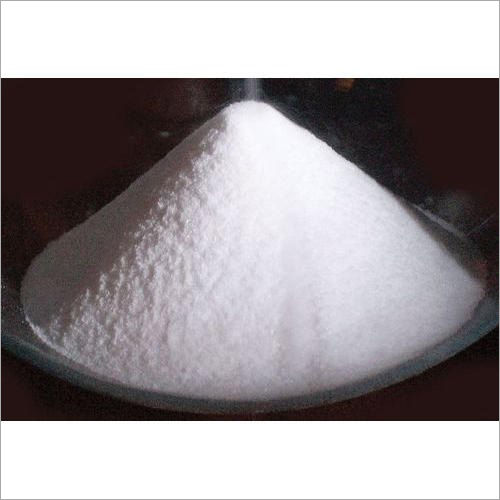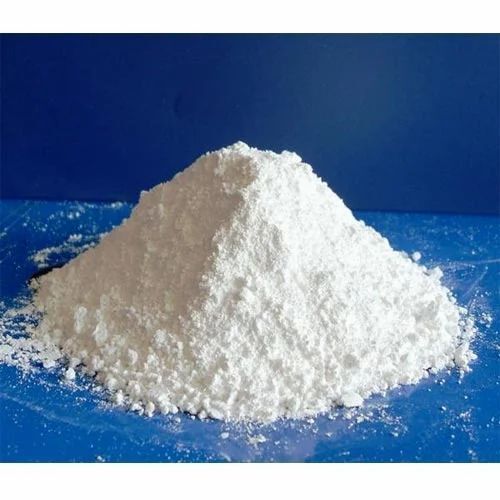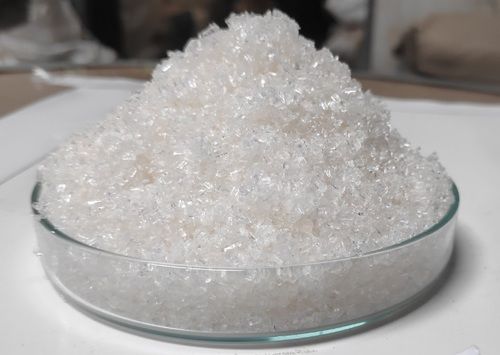Copper Sulphate
1000 INR/Kilograms
Product Details:
- Molecular Weight 159.609 g/mol Grams (g)
- Structural Formula CuSO
- Storage Dry Place
- Place of Origin India
- Solubility Water
- Color Blue
- Click to View more
X
Copper Sulphate Price And Quantity
- 1000 INR/Kilograms
- 2000 Kilograms
Copper Sulphate Product Specifications
- CuSO
- Dry Place
- Blue
- 159.609 g/mol Grams (g)
- Water
- India
Copper Sulphate Trade Information
- 10000 Kilograms Per Day
- 1 Week
- All India
Product Description
Copper sulfate, also known as cupric sulfate or copper(II) sulfate, is a chemical compound with the formula CuSO4. It exists in several forms, including anhydrous (without water), pentahydrate, and other hydrated forms.
Copper Sulphate Properties:
1. Appearance: Copper sulfate occurs in various forms, including:
a. Anhydrous copper sulfate: A white crystalline solid.
b. Copper sulfate pentahydrate (CuSO4 5H2O): The most common form, which is bright blue in color. It often appears as blue crystalline granules or powder.
c. Other hydrated forms: Copper sulfate can also exist in other hydrated forms with different numbers of water molecules attached to the copper sulfate molecule.
2. Solubility: Copper sulfate is soluble in water. The solubility varies with temperature, with higher temperatures generally increasing solubility. For example, at 20 degree centigrade, about 23 grams of copper sulfate can dissolve in 100 milliliters of water, while at 100 degree centigrade, it can dissolve around 70 grams per 100 milliliters of water.
3. Electrical Conductivity: A solution of copper sulfate conducts electricity because it dissociates into copper ions (Cu2+) and sulfate ions (SO42-) when dissolved in water. The presence of these ions allows the solution to conduct electricity.
4. Color: The hydrated forms of copper sulfate, particularly the pentahydrate, are known for their distinctive blue color. This blue color is often used as an indicator of the presence of copper ions in solution.
5. Toxicity: Copper sulfate can be toxic if ingested in large amounts. It can cause gastrointestinal irritation, nausea, vomiting, and in severe cases, liver and kidney damage. Care should be taken when handling and storing it, and it should be kept away from children and pets.
Copper Sulphate Applications:
1. Agriculture:
a. Fungicide: Copper sulfate is widely used in agriculture to control fungal diseases in crops, including fruits, vegetables, and grains. It is effective against a range of fungal pathogens such as mildews, blights, and rots.
b. Herbicide: In addition to its fungicidal properties, copper sulfate is used as an herbicide to control weed growth, particularly in aquatic environments such as ponds and lakes.
c. Pesticide: Copper sulfate is also employed as a pesticide to deter or eliminate certain pests, including snails and algae, particularly in aquaculture and irrigation systems.
2. Chemical Industry:
a. Electroplating: Copper sulfate is used in electroplating processes to deposit a layer of copper onto metal surfaces. This process is widely utilized in the manufacturing of electronic components, decorative items, and metal coatings.
b. Catalysis: It serves as a catalyst in various chemical reactions, particularly in organic synthesis and industrial processes.
3. Animal Nutrition:
Copper sulfate is included in animal feed as a nutritional supplement, especially for ruminants like cattle, to address copper deficiencies. Proper levels of copper in the diet are essential for animal health, including growth, reproduction, and immunity.
4. Water Treatment:
a. Algae Control: Copper sulfate is used in water treatment to control algae growth in reservoirs, ponds, and water bodies. It disrupts the photosynthesis process in algae cells, thereby reducing their population.
b. Sanitation: In certain industrial applications, copper sulfate is added to water systems for its antimicrobial properties, helping to control the growth of bacteria and fungi.
5. Education and Research:
Copper sulfate is commonly used in educational settings for laboratory experiments and demonstrations, particularly in chemistry classes. It serves as a visually striking example of chemical reactions, solubility, and crystal formation.
6. Wood Preservation:
Copper sulfate is sometimes employed in wood preservation treatments to protect timber from decay caused by fungi and insects. It helps to extend the lifespan of wooden structures, such as utility poles, fences, and outdoor furniture.
Copper Sulphate FAQ:
Q. What are the main uses of copper sulfate?
Ans: Copper sulfate has various applications across industries, including agriculture (as a fungicide, herbicide, and pesticide), chemical industry (in electroplating and catalysis), animal nutrition (as a feed additive), water treatment (for algae control), wood preservation, and education (for laboratory demonstrations).
Q. Is copper sulfate toxic?
Ans: Yes, copper sulfate can be toxic if ingested in large quantities. It can cause gastrointestinal irritation, nausea, vomiting, and, in severe cases, liver and kidney damage. Care should be taken when handling and storing it, and it should be kept away from children and pets.
Q. How is copper sulfate applied in agriculture?
Ans: In agriculture, copper sulfate is used to control fungal diseases in crops, weeds, and pests. It is applied as a spray or dust directly onto plants or added to irrigation systems. It helps prevent and treat diseases such as mildews, blights, rots, and certain weed species.
Q. What precautions should be taken when using copper sulfate?
Ans: When using copper sulfate, it's essential to follow safety guidelines provided by regulatory authorities and product labels. Protective clothing, gloves, and eyewear should be worn to prevent skin and eye contact. Proper ventilation is also important when handling copper sulfate to avoid inhalation of dust or fumes.
Q. Can copper sulfate be used in water treatment?
Ans: Yes, copper sulfate is used in water treatment to control algae growth in ponds, reservoirs, and water bodies. It disrupts the photosynthesis process in algae cells, thereby reducing their population. However, its use should be carefully regulated to avoid environmental impacts and toxicity to aquatic organisms.
Q. Is copper sulfate safe for use around pets and wildlife?
Ans: Copper sulfate should be used cautiously around pets and wildlife, as ingestion or exposure to high concentrations can be harmful. It's important to store copper sulfate securely and apply it according to recommended dosage rates to minimize risks to non-target organisms.
Tell us about your requirement

Price:
Quantity
Select Unit
- 50
- 100
- 200
- 250
- 500
- 1000+
Additional detail
Mobile number
Email







 Send Inquiry
Send Inquiry Send SMS
Send SMS
